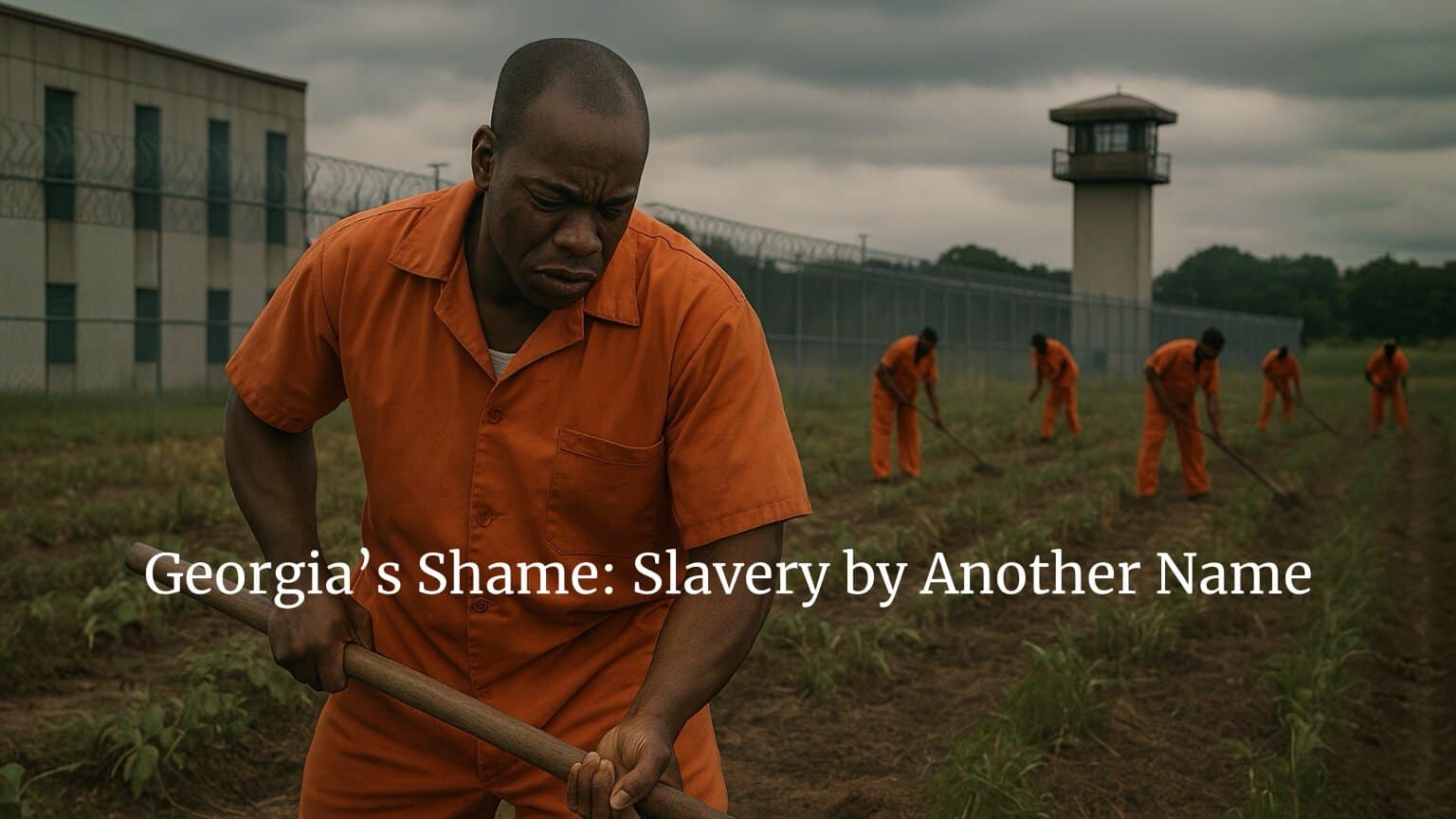In Georgia, the past is not past. The state’s prison labor system bears striking resemblance to the convict leasing regime that followed the abolition of slavery—a system deliberately crafted to maintain racial control and economic exploitation after emancipation 1. Today, incarcerated people across Georgia are compelled to work without pay or for pennies an hour, their labor sustaining state institutions, private companies, and local governments.
The International Trade Union Confederation (ITUC) recently underscored this reality in its submission to the International Labor Organization, condemning the United States for violations of the Forced Labor Convention (No. 105). Georgia was one of the states specifically named in the report, not only for its widespread reliance on prison labor but also for its historical continuity with racialized systems of forced work2. The ITUC has since reiterated these concerns in its Global Rights Index, condemning the United States for systemic violations of workers’ rights, including the lack of protections for incarcerated workers 3. Georgia’s reliance on prison labor reflects a broader national pattern, but its history is deeply tied to racialized systems of forced work that continue today. The Economic Policy Institute has further documented how prison labor in the United States, particularly in the South, is rooted in racism and coercion, with incarcerated people compelled to work for little or no pay under threat of punishment 4. The ACLU has likewise reported that incarcerated workers face reprisals such as solitary confinement, loss of visitation, and denial of basic needs if they refuse to work 5. By situating Georgia’s practices within the framework of international labor law, these reports confirm what incarcerated people and their families have long insisted: forced labor in U.S. prisons is not an anomaly, but a systemic injustice that persists under legal cover.
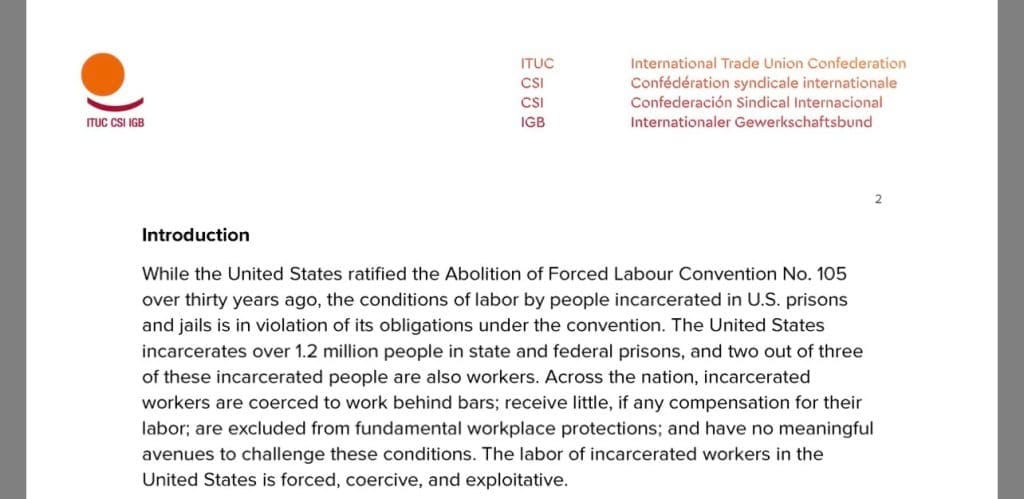
The Exception Clause and Georgia’s Prison Farm System
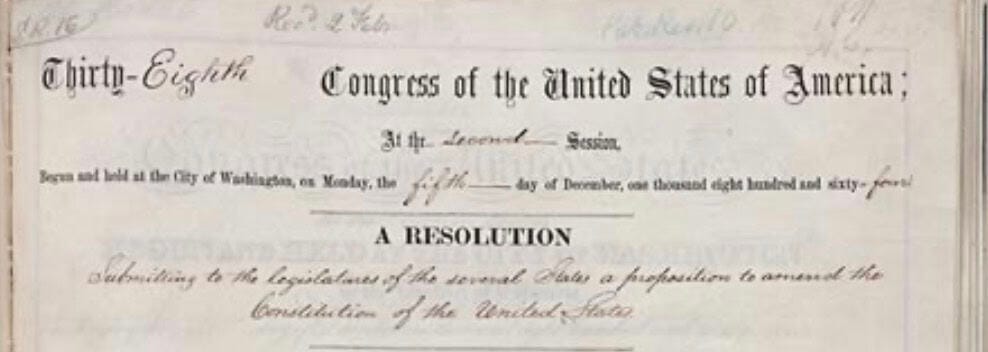
At the heart of this injustice lies the 13th Amendment’s exception clause, which abolished slavery “except as punishment for crime”6. Georgia embraced this loophole with particular zeal. Following Reconstruction, the state leased convicts—overwhelmingly Black men—to railroads, mines, and plantations. That system of convict leasing formally ended in 1908, but its spirit lived on in state-run prison farms.
The Georgia Prison Farm system, most notoriously the Atlanta Prison Farm that operated until the late twentieth century, exemplified this continuity 7 8. Thousands of incarcerated people were forced into grueling agricultural work under armed guard, producing food and goods for the state while enduring violence and neglect. The same practices extended beyond Atlanta; for decades, prisoners were also forced into unpaid labor at a brickyard along the Chattahoochee River 9. That system never truly ended—it simply evolved. Across Georgia’s correctional facilities today, incarcerated workers still harvest crops, prepare food, clean, and perform skilled trades that keep prisons—and the state itself—running, all while stripped of basic labor rights.
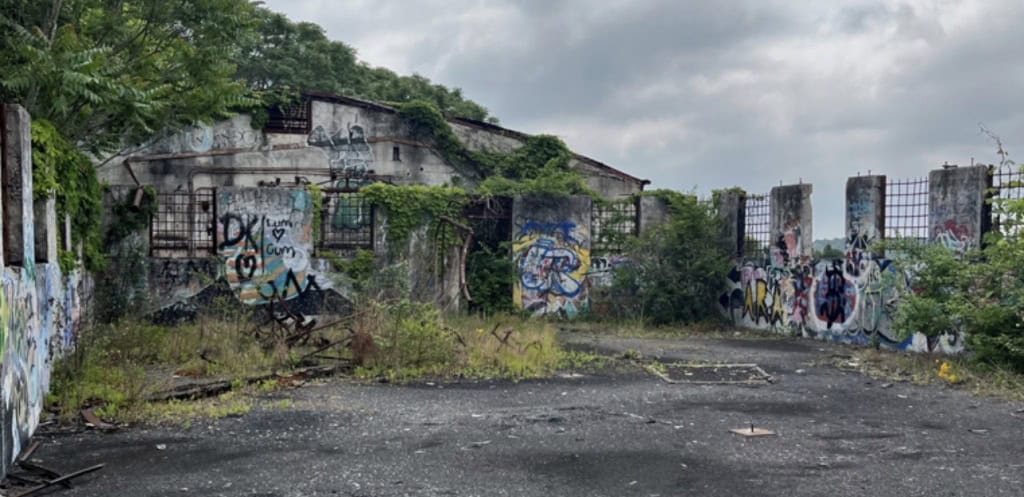
Barriers to Justice
The ITUC further highlights how incarcerated workers in Georgia and across the U.S. face nearly insurmountable barriers in seeking justice. Under the Prison Litigation Reform Act (PLRA) of 1996, incarcerated people must exhaust administrative remedies before bringing claims in federal court 10. In Georgia, this means a grievance must be filed within just 10 calendar days—an unreasonably short deadline that often prevents incarcerated workers from accessing legal relief 11. The result is that countless claims of abuse, unsafe conditions, and forced labor are dismissed before courts even consider them.
Who Profits from Forced Labor
Georgia’s reliance on unpaid or underpaid prison labor benefits more than the Department of Corrections. State agencies and private corporations profit directly from this coerced work. Incarcerated people are assigned to produce license plates, repair vehicles, and manufacture furniture through Georgia Correctional Industries, with their labor flowing into state coffers and commercial supply chains 12. Counties and municipalities also benefit from “work crews” deployed to maintain roads, clear brush, and perform other essential services that would otherwise require fair wages.
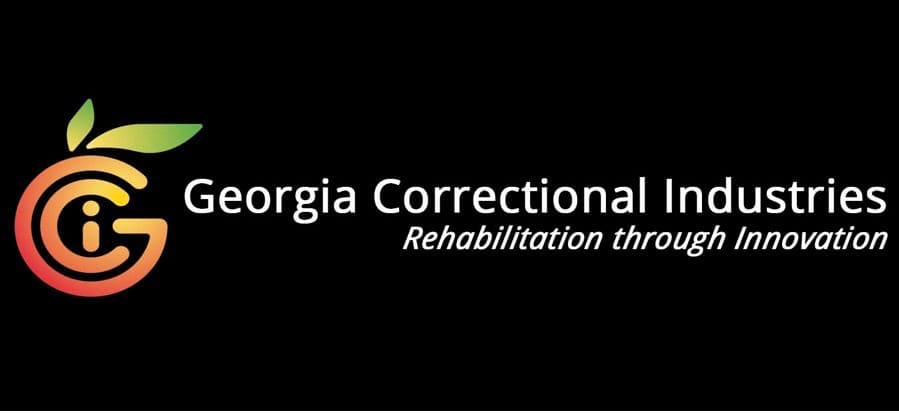
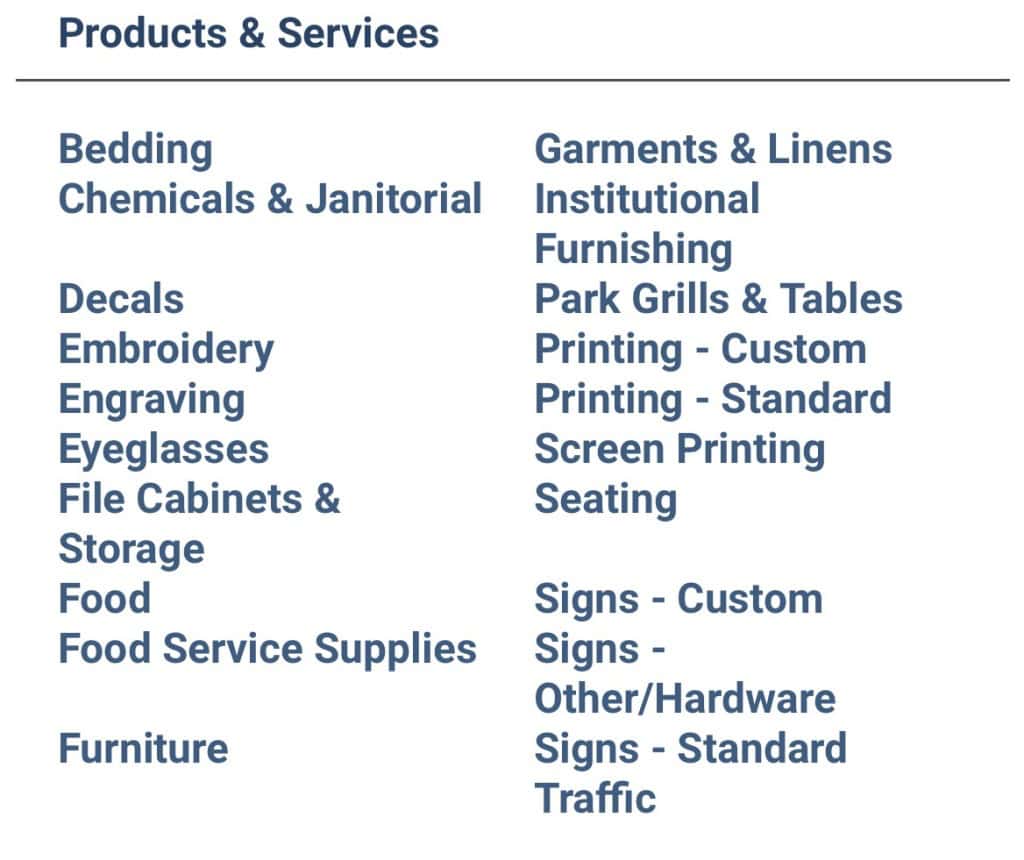
The ITUC report rightly connects these practices to modern-day forced labor, where corporations and governments extract economic value from incarcerated workers under threat of punishment. Refusing work in Georgia prisons can lead to solitary confinement, loss of visitation, or other reprisals 13 14. Consent is a fiction; the labor is compelled.
Incarcerated Voices and Resistance
Those most directly affected have been the clearest in naming the truth: this is slavery by another name. Georgia prisoners have repeatedly organized work strikes and hunger strikes to demand wages, humane conditions, and recognition of their labor rights. Their voices, though often silenced by retaliation and censorship, cut through the state’s denial.
As one incarcerated organizer wrote during the 2010 Georgia Prison Strike—the largest in U.S. history at the time—“We are forced to work for free, while Georgia makes millions off our backs. This is the same system our ancestors fought to escape” 15 16.
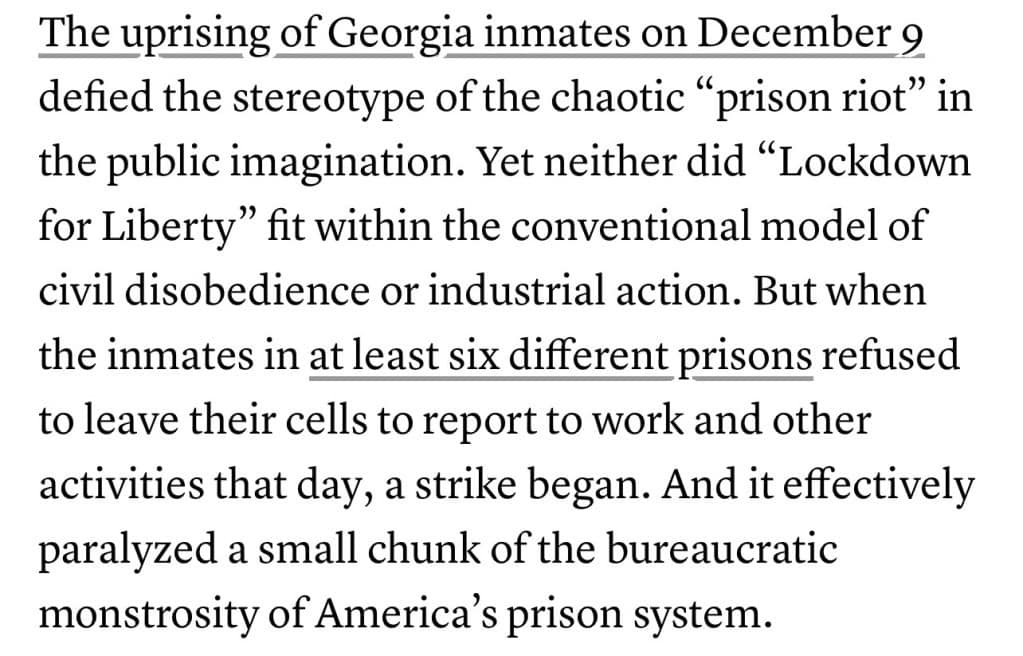
Toward True Abolition
The unfinished work of abolition is a national struggle. Ending forced prison labor requires repealing the 13th Amendment’s exception clause, extending wage and safety protections to incarcerated workers, and dismantling the corporate and state systems that profit from their exploitation.
The choice before Georgia is the same one that haunted the state after the Civil War: to preserve an economy built on bondage, or to finally, unequivocally, end slavery.
✍️ By Mary Smith, Founder, Prisoners’ Rights Alliance
Take Action
Slavery by another name still exists in Georgia’s prisons — but together, we can end it. You can help by demanding change: write to your legislators and urge them to abolish forced prison labor and expand real rehabilitation programs.
Use Impact Justice AI to generate letters instantly and make your voice heard. Every message matters — and every voice brings us one step closer to justice.

Here are other GPS articles you might find interesting:

- Convict Lease System – New Georgia Encyclopedia: https://www.georgiaencyclopedia.org/articles/history-archaeology/convict-lease-system/[↩]
- ITUC Report: https://gps.press/wp-content/uploads/2025/09/ITUC-observations-under-art-23-USA-C105-re-forced-labour.pdf[↩]
- ITUC Global Rights Index – Forced Labour References: https://www.ituc-csi.org/global-rights-index[↩]
- Economic Policy Institute – Forced prison labor in the “Land of the Free”: Rooted in Racism, Prison Labor: https://www.epi.org/publication/rooted-racism-prison-labor/[↩]
- ACLU – Captive Labor: Exploitation of Incarcerated Workers (2022 report): https://assets.aclu.org/live/uploads/publications/2022-06-15-captivelaborresearchreport.pdf[↩]
- 13th Amendment Exception Clause – U.S. National Archives: https://www.archives.gov/milestone-documents/13th-amendment[↩]
- Atlanta History Center – History of the Atlanta Prison Farm Site: https://www.atlantahistorycenter.com/history-of-the-atlanta-prison-farm-site/[↩]
- Atlanta History Center – History of the Atlanta Prison Farm Site (2023 report PDF): https://www.atlantahistorycenter.com/app/uploads/2023/09/WEB_ATLPrisonFarm_Report_09222023.pdf[↩]
- Atlanta Magazine – For Decades, Prisoners Were Forced into Unpaid Labor at a Brickyard Along the Chattahoochee River: https://www.atlantamagazine.com/great-reads/for-decades-prisoners-were-forced-into-unpaid-labor-at-a-brickyard-along-the-chattahoochee-river-how-will-we-remember-them/[↩]
- Prison Litigation Reform Act & Georgia 10-Day Deadline – Prison Legal News: https://www.prisonlegalnews.org/news/2022/may/1/eleventh-circuit-says-georgia-prisoner-failed-exhaust-remedies-filing-late-grievance-ask-investigation-was-already-underway/[↩]
- Georgia Inmate Grievance System Overview – GPS: https://gps.press/georgia-inmate-grievance-system-overview/[↩]
- Georgia Correctional Industries – Official Site: https://www.gci-ga.com/[↩]
- The Marshall Project – Prison Plantations: https://www.themarshallproject.org/2015/05/01/prison-plantations[↩]
- Human Rights Watch – Prisoners Striking for Fair Wages, Humane Conditions: https://www.hrw.org/news/2018/09/05/prisoners-striking-fair-wages-humane-conditions-deserve-support[↩]
- Facing South – Georgia prisoner strike comes out of lockdown: https://www.facingsouth.org/2010/12/georgia-prisoner-strike-comes-out-of-lockdown.html[↩]
- In These Times – Georgia Prison Strike: A Hidden Labor Force Resists: https://inthesetimes.com/article/georgia-prison-strike-a-hidden-labor-force-resists[↩]
